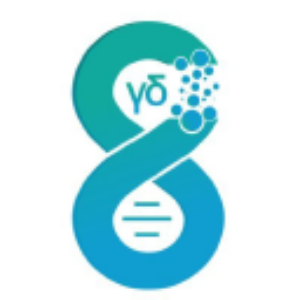IN8bio Doses First Patient in Phase 2 Clinical Trial of INB-400 in Newly Diagnosed Glioblastoma
IN8bio, Inc. (Nasdaq: INAB) has dosed the first patient in a Phase 2 clinical trial of INB-400 for newly diagnosed glioblastoma multiforme (GBM). INB-400 is an autologous gamma-delta T cell therapy genetically engineered to survive chemotherapy and enhance cancer cell killing. The trial, expected to enroll up to 40 patients, aims to evaluate safety, tolerability, and overall survival rate at 12 months. INB-400 was granted Orphan Drug Designation in 2023 and is designed to work alongside standard-of-care treatments like temozolomide.
IN8bio has successfully dosed the first patient in the Phase 2 clinical trial of INB-400, a promising autologous gamma-delta T cell therapy product candidate for newly diagnosed GBM.
INB-400 was granted Orphan Drug Designation by the FDA in 2023, highlighting its potential as an innovative treatment option for patients with therapeutic choices.
The trial is designed to assess the safety, tolerability, and potential efficacy of INB-400 in combination with standard-of-care treatments for GBM, with a focus on improving patient outcomes and achieving deeper responses in difficult-to-treat cancers.
Despite the promising approach of combining engineered gamma-delta T cells with standard-of-care treatments, the Phase 2 trial results are yet to be determined, and the ultimate success of INB-400 in improving patient outcomes remains uncertain.
Most patients with GBM relapse within six to seven months despite current standard-of-care treatments, indicating the critical need for more effective therapies like INB-400 to address the survival rates beyond five years.
Insights
NEW YORK, April 30, 2024 (GLOBE NEWSWIRE) -- IN8bio, Inc. (Nasdaq: INAB), a clinical-stage biopharmaceutical company advancing innovative gamma-delta T cell therapies, announced today that the first patient in its Phase 2 clinical trial evaluating INB-400 in patients with newly diagnosed glioblastoma multiforme (GBM) has been successfully dosed at the Cleveland Clinic in Ohio.
INB-400 is the Company’s first autologous gamma-delta T cell therapy product candidate genetically engineered to survive chemotherapy and maintain the natural ability to recognize, engage and kill cancer cells when dosed along with current, standard-of-care treatments such as temozolomide (Temodar, or TMZ). Arm A of the INB-400 trial is expected to enroll up to 40 patients. INB-400 was granted Orphan Drug Designation by the FDA in 2023.
“The initiation of patient dosing in our Phase 2 trial of INB-400 represents an important milestone for both IN8bio and patients with newly diagnosed GBM who have limited therapeutic options,” said William Ho, CEO and co-founder of IN8bio. “Our novel approach combines engineered, chemotherapy-resistant gamma-delta T cells with standard-of-care treatments to potentially drive deeper responses and improved patient outcomes in difficult-to-treat cancers. We look forward to advancing INB-400 at multiple leading medical centers across the United States for patients with GBM and sharing updates, including long-term follow up data from the Phase 1 INB-200 program, at medical meetings this year.”
Gamma-delta T cells are naturally occurring immune cells with unique properties enabling them to naturally differentiate between healthy and cancerous tissues. They serve to bridge between the innate and adaptive immune system, contributing to direct tumor cell killing as well as immune memory, cell recruitment and activation to drive deeper immune responses.
The Phase 2 study will evaluate the safety and tolerability of INB-400 in patients with newly diagnosed GBM in combination with TMZ. In Arm A of the trial, investigators will administer T cells to patients on the first day of each of six 28-day maintenance cycles concurrent with TMZ for up to six doses. The primary endpoint of the study is overall survival rate at 12 months. Secondary endpoints include safety and tolerability, overall response rate, time to progression, and progression-free survival.
Since 2005, the standard-of-care treatment for GBM has been surgical resection followed by radiation and chemotherapy and six cycles of maintenance temozolomide therapy, referred to as the Stupp regimen. Most patients relapse in six to seven months, with very few patients surviving beyond five years. INB-400 is engineered to be resistant to alkylating chemotherapy, enabling it to be used in combination with the current standard-of-care TMZ to amplify immune signals, maximize tumor killing, and eliminate cancer cells.
More information about the Phase 2 study (NCT05664243) can be found at www.clinicaltrials.gov.
About INB-400
INB-400 is IN8bio’s DeltEx chemotherapy resistant autologous drug-resistant immunotherapy (DRI). INB-400 was granted Orphan Drug Designation for the treatment of glioblastoma multiforme (GBM) by the FDA in April 2023, marking the first genetically modified gamma-delta T cell therapy to receive this regulatory designation. GBM remains a significant unmet need, treatment options and associated outcomes for GBM, highly aggressive and difficult-to-treat brain cancer, have remained largely unchanged for more than 18 years, with a median progression free survival of 6-7 months and overall survival of 14-16 months. Allogeneic INB-400 will expand the application of DRI gamma-delta T cells into other solid tumor types through the development of allogeneic or “off-the-shelf” DeltEx DRI.
About IN8bio
IN8bio is a clinical-stage biopharmaceutical company developing gamma-delta T cell-based immunotherapies for cancer patients. Gamma-delta T cells are a specialized population of T cells that possess unique properties, including the ability to differentiate between healthy and diseased tissue. The company’s lead program INB-400 is in a Phase 2 trial in glioblastoma multiforme (GBM). Additional programs include Phase 1 trials in solid and hematologic tumors, including INB-200 for GBM and INB-100 for patients with hematologic malignancies undergoing transplantation. For more information about IN8bio, visit www.IN8bio.com.
Company Contact
IN8bio, Inc.
Patrick McCall
+1 646.600.6GDT (6438)
info@IN8bio.com
Investors
Meru Advisors
Lee M. Stern
lstern@meruadvisors.com
Media Contact
Kimberly Ha
KKH Advisors
917.291.5744
kimberly.ha@kkhadvisors.com








